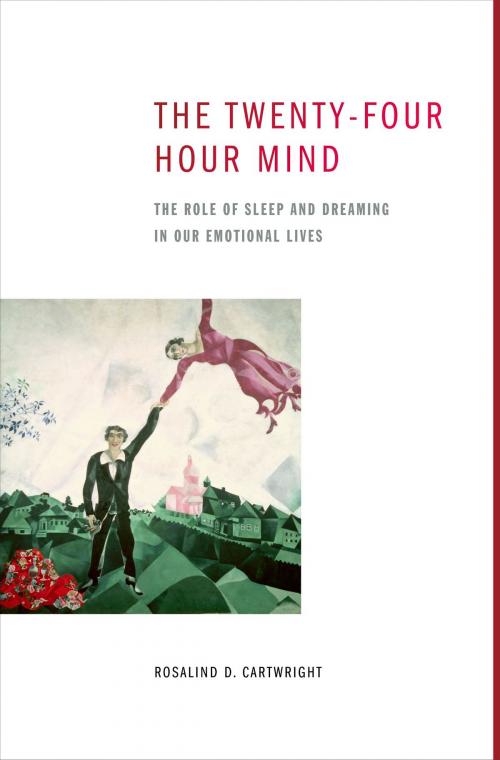The Twenty-four Hour Mind
The Role of Sleep and Dreaming in Our Emotional Lives
Nonfiction, Health & Well Being, Psychology, Clinical Psychology, Medical| Author: | Rosalind D. Cartwright | ISBN: | 9780199888993 |
| Publisher: | Oxford University Press | Publication: | June 24, 2010 |
| Imprint: | Oxford University Press | Language: | English |
| Author: | Rosalind D. Cartwright |
| ISBN: | 9780199888993 |
| Publisher: | Oxford University Press |
| Publication: | June 24, 2010 |
| Imprint: | Oxford University Press |
| Language: | English |
Leading sleep researcher Rosalind Cartwright brings together decades of work on sleep, dreaming and sleep disorders to propose a new theory of how the mind works continuously. Drawing on her own research and that of others, Cartwright describes how conscious and unconscious thoughts and feelings move forward--from waking, into sleep and dreaming, to the next waking day. One main purpose of sleep is to regulate disturbing emotions .Not everyone does this successfully every night. Her research on dreams of those suffering depression show these fail to regulate mood overnight, and when sleepwalkers behave aggressively they have not had enough time dreaming. With many case examples, the author illustrates how conscious and unconscious thoughts and feelings are being linked to older memories throughout sleep and dreams, and how this process effects changes in thinking and feeling the next day--even reshaping our identities. The Twenty-four Hour Mind offers a unique integration of psychology and sleep research that will be of interest to anyone captivated by the mysteries of the mind--and what sleep and dreams teach us about ourselves.
Leading sleep researcher Rosalind Cartwright brings together decades of work on sleep, dreaming and sleep disorders to propose a new theory of how the mind works continuously. Drawing on her own research and that of others, Cartwright describes how conscious and unconscious thoughts and feelings move forward--from waking, into sleep and dreaming, to the next waking day. One main purpose of sleep is to regulate disturbing emotions .Not everyone does this successfully every night. Her research on dreams of those suffering depression show these fail to regulate mood overnight, and when sleepwalkers behave aggressively they have not had enough time dreaming. With many case examples, the author illustrates how conscious and unconscious thoughts and feelings are being linked to older memories throughout sleep and dreams, and how this process effects changes in thinking and feeling the next day--even reshaping our identities. The Twenty-four Hour Mind offers a unique integration of psychology and sleep research that will be of interest to anyone captivated by the mysteries of the mind--and what sleep and dreams teach us about ourselves.















